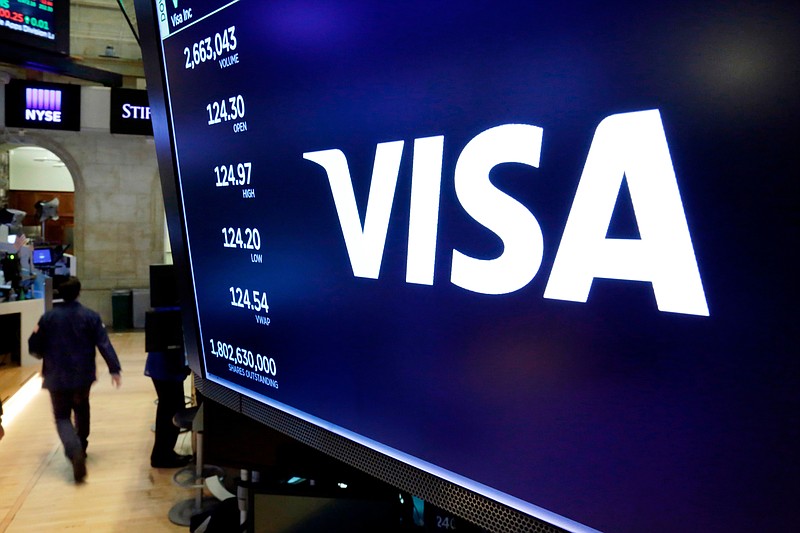CHARLOTTE, N.C. -- Visa is under investigation by the Department of Justice's antitrust division over whether the company pushes merchants into more expensive forms of debit card payments, The Wall Street Journal reported Friday.
The investigation is focused on how merchants route debit card transactions when a consumer makes an online transaction, according to the Journal, which cited anonymous sources.
San Francisco-based Visa declined to comment.
Visa earns a "swipe fee" for each transaction that is run on its network. However, debit card fees are strictly regulated after Congress passed the Dodd Frank Act following the 2008 financial crisis, in what's known as the Durbin amendment. The reasoning behind the regulation was that debit cards are typically used for smaller transactions, where merchants' profit margins may be smaller, compared with high-value transactions that consumers typically use their credit cards for.
Merchants are supposed to be given the option to run a debit card transaction on lower-cost networks instead of running it on Visa's or Mastercard's network.
The option often appears on the PIN pads used by consumers when they buy goods at a store. But that option is not available for online transactions, and manipulating where those transactions are being routed could be an anti-competitive practice.
Visa, as the largest payment network, has faced antitrust investigations in the past. The Justice Department blocked Visa's purchase of the financial technology company Plaid earlier this year, citing antitrust concerns. The company has also paid out billions of dollars over the past two decades to settle allegations that merchants were overpaying to accept credit and debit cards.
Visa's stock fell about 6% in Wall Street trading Friday.
Earlier this week, Visa and Mastercard said that because of the pandemic they are delaying until next year plans to raise the fees that U.S. merchants pay when consumers use credit cards online.
Retailers have been asking both networks in recent months to delay increases in so-called interchange fees, hoping to avoid a jump in costs for accepting cards at a time when consumers are especially reliant on online shopping.
While Visa and Mastercard set interchange rates that merchants pay each time a consumer swipes their card at checkout, it's banks that keep most of that fee.
Information for this article was contributed by staff members of The Associated Press and by Jenny Surane of Bloomberg News (WPNS).
